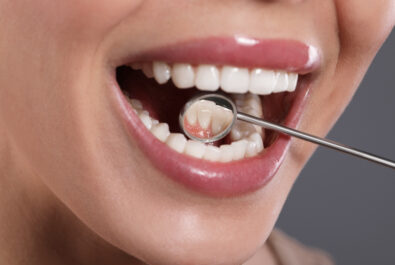Sleep disorders like sleep apnea or sleep bruxism can be difficult to diagnose because the patient is usually unaware of the condition. There are signs that issues throughout the sleep cycle may be occurring, however, but they vary depending on the condition. How are sleep disorders diagnosed? If you believe you’re having trouble throughout the night, your dentist may recommend undergoing a sleep study to determine if you have a disorder. Throughout the study, your body will be attached to machines that are monitoring things like the oxygen levels in your blood and your heart rate.
What Causes Sleep Apnea?
Sometimes, your throat muscles will relax when you’re asleep. This causes your airway to tighten (or close) and can shut off the oxygen to your brain. Often times, patients who have sleep apnea will awake abruptly throughout the night with shortness of breath.
How Can You Treat Sleep Apnea?
For mild cases of this sleep disorder, your dentist may recommend simple lifestyle changes to your diet and exercise regime. If you chew or smoke tobacco – they’ll also recommend quitting that habit as it can contribute to your sleep disorder tremendously.
For more moderate cases, you may need to sleep with a CPAP machine. A Continuous Positive Airway Pressure machine works to keep your airway open by using a little force to push oxygen into your body.
For severe sleep apnea cases, you could benefit from oral surgery to remove soft tissues at the back of your throat. This could make it easier for your throat muscles to keep your airway open because there will be less soft tissue to block the flow of oxygen.
If you have been experiencing any symptoms of sleep apnea, contact your dentist to see if a sleep study would be a good option for you.













